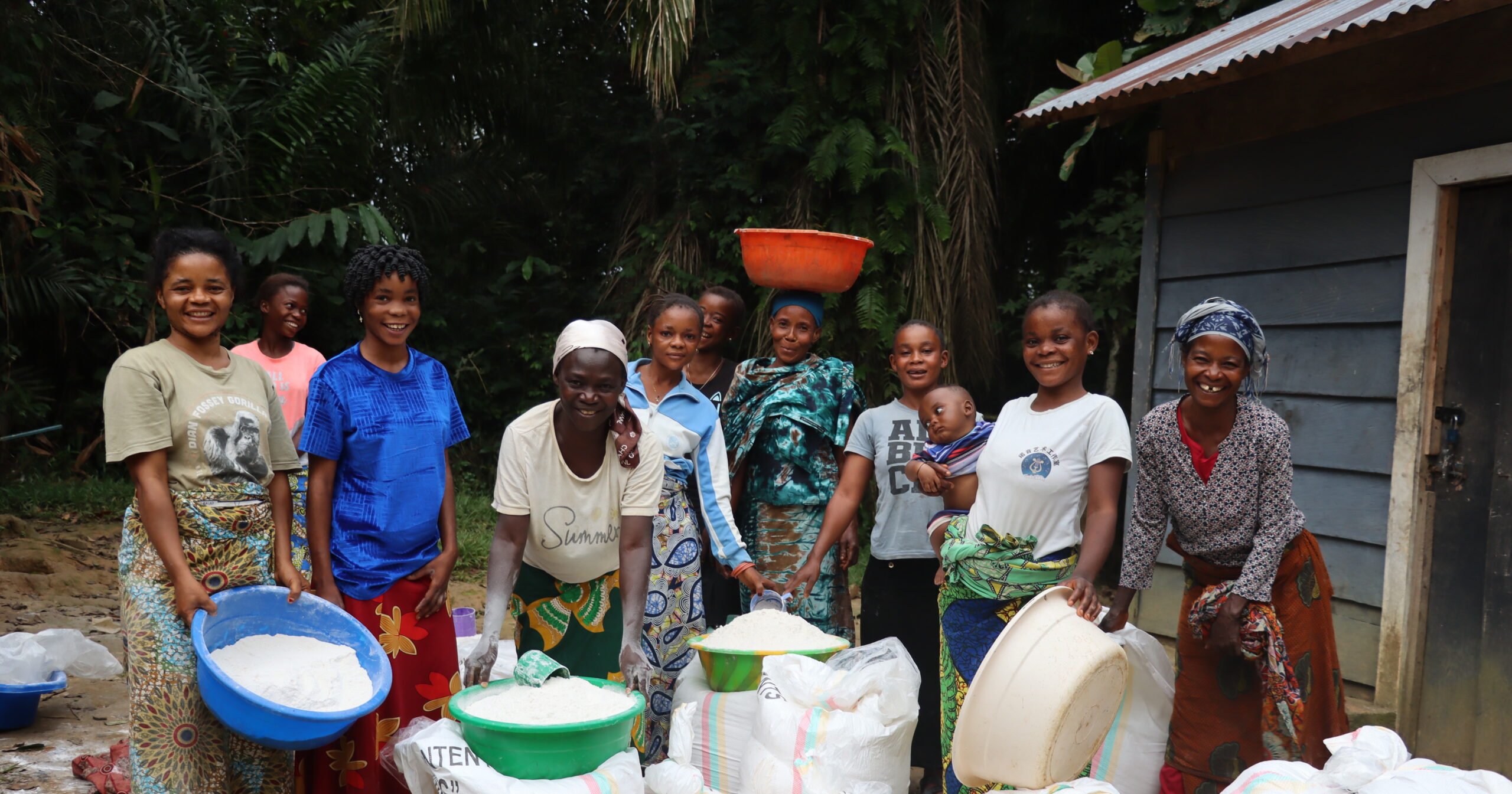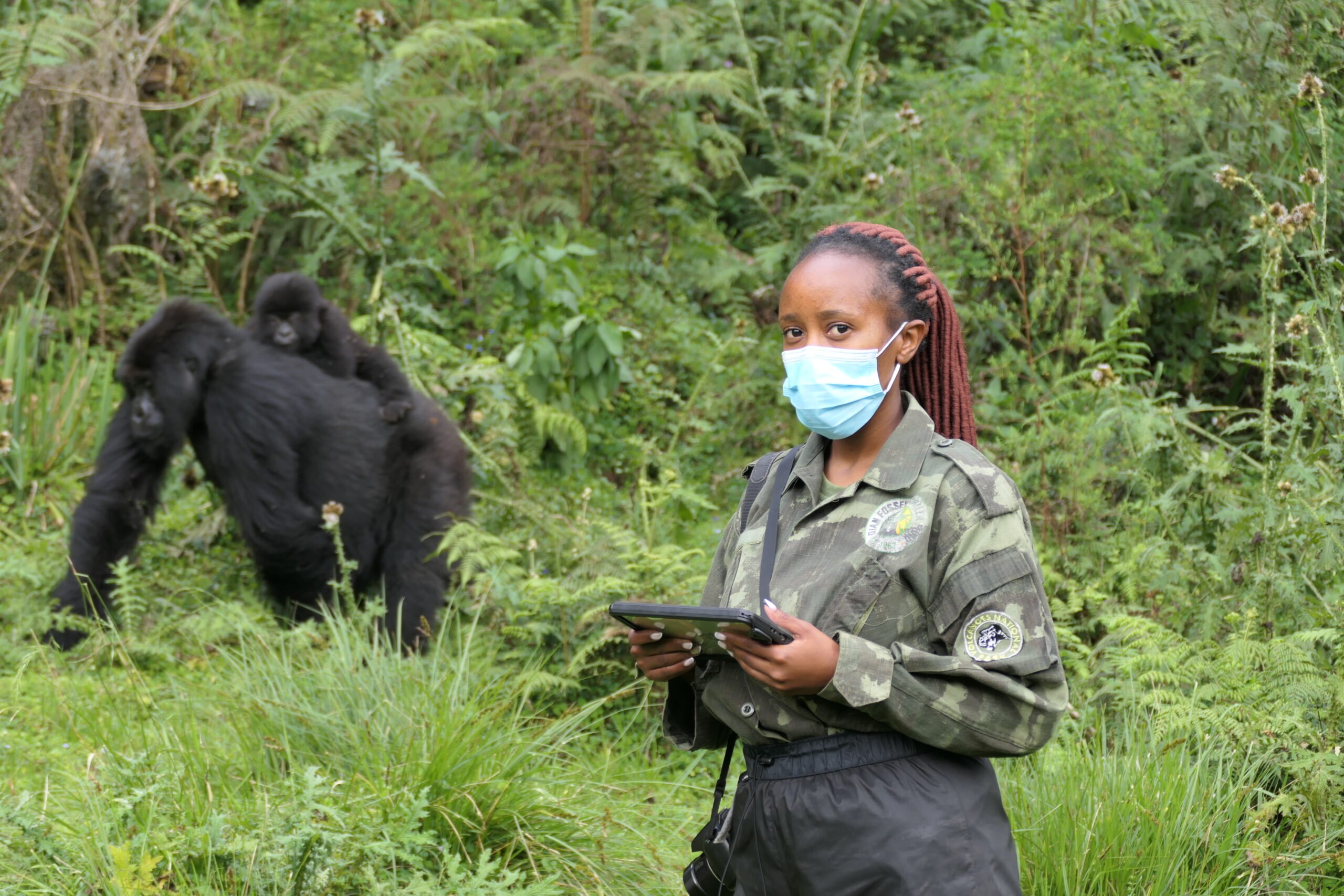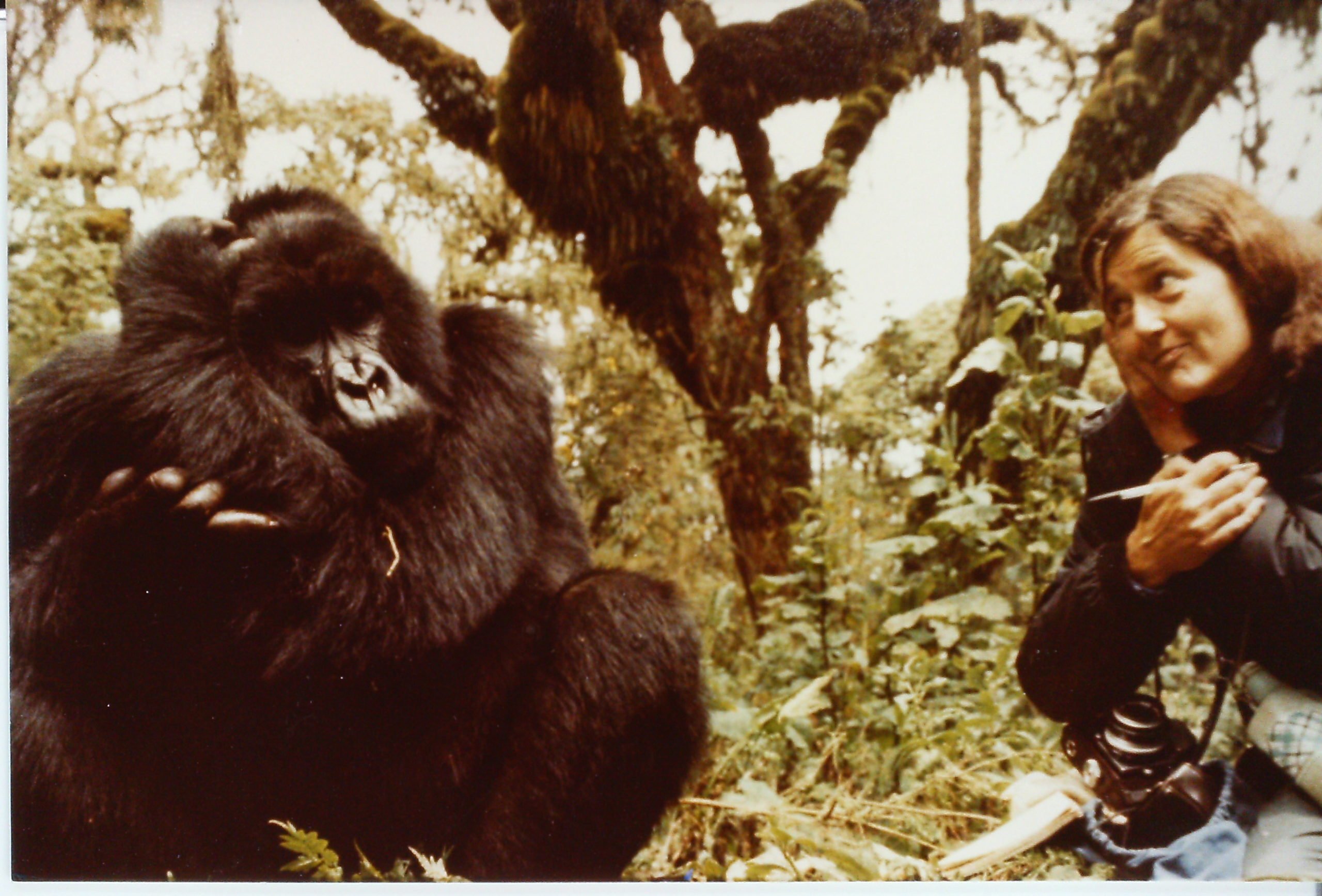
How COVID-19 Has Affected Our Community Outreach Programs
June 30th
The Fossey Fund’s community engagement programs are key to our people-centered approach to conservation. It’s what’s behind our motto: “Helping People. Saving Gorillas.”
Right now, the safety of our community members and the Fossey Fund team is our priority. The spread of the coronavirus has restricted movement in Rwanda in the areas where we work, limiting our ability to reach out with community development and conservation education programming.
Instead, we are hard at work and focused on planning so that we can roll out new programming as soon as public health conditions allow. “Because of the sensitivity to our community work to the relationship between gorilla conservation and community welfare, we have to be creative and keep things in motion,” says Community Engagement Manager Ivan Amani. We are designing new lesson plans to be used when schools in the area reopen and writing new project proposals. We are monitoring our bamboo, mushroom and animal husbandry projects remotely. And we continue to engage with our strategic and implementing partners such as the Rwanda Development Board, cooperatives, school administrators and community groups.

Once the quarantine period in Rwanda is over, the Fossey Fund plans to add 10 additional household participants to our animal husbandry and mushroom projects; screen a conservation education movie in three communities; conduct additional citizen science workshops; roll out a new conservation education program in 15 schools; and initiate a community project targeted at improving understanding of pandemics and strengthening resilience.

Our work in Nkuba, DRC
Because the Nkuba Conservation Area (NCA) is quite remote, our work in the Democratic Republic of the Congo has not been severely impacted by the coronavirus outbreak. Our work in both gorilla protection and community development continues with relatively little change. According to Amani, “tracking patrols are ongoing, as are community projects targeted at reducing pressure on the protected forest. Within surrounding communities, gardening, animal husbandry and fishing projects continue to improve food security, nutrition and household incomes while providing alternative means of survival outside of the gorilla habitat.” We are, however, concerned about the potential for hunting to increase as food prices increase and supply chains are interrupted by the virus.
May 5, 2020
Updated Response to Coronavirus
On May 4, we were able to restart construction of The Ellen DeGeneres Campus of the Dian Fossey Gorilla Fund.
The government of Rwanda began allowing essential construction workers to return to work on May 1, allowing us to resume construction work on our Campus on a limited basis and keep the site safe.
We worked with our construction partners at MASS Build to develop a detailed plan outlining how we could safely restart construction on our Campus. This plan includes:
- Limiting the number of personnel on site.
- Implementing daily health testing protocols, including temperature checks, use of masks and handwashing, for everyone at the site.
- Staggering start and stop times to prevent congestion at entry points.
- Maintaining social distance while on site.
At this time, there are no changes to the enhanced protocols required for our field staff, including trackers, which were designed to keep our people and the mountain gorillas safe.
April 3, 2020
Updated Response to Coronavirus
At the Fossey Fund, we are continuing to monitor the COVID-19 situation across the globe and especially in the countries where we work. We are adapting our activities to ensure the safety of our staff and the gorillas. As we have updates, we will add them in this space.
As we reported previously, it is not known if gorillas are susceptible to COVID-19. However, given that they share such a high percentage of our DNA and are susceptible to other human respiratory viruses, the most appropriate approach is to assume that they would be affected by COVID-19 and put in place appropriate measures to limit any transmission while also continuing to ensure their protection.
In Rwanda, the government made the prudent decision on March 21 to stop international travel to/from the country and put in place a stay-a-home measure for all but essential workers. Our trackers are considered essential and so are still out in the field monitoring every gorilla under our care. In addition to continuing our daily health checks, wearing face masks, and limiting our time with the gorillas to a quick confirmation that they are all present and healthy, all trackers are working in two-week rotations so that while they are on duty, they are isolated from the larger community.
The good news is we have been able to keep up with all the gorilla groups we were monitoring before the appearance of COVID-19 and they are doing well. The trackers are also doing well and are in positive spirits despite the new challenges they face.
In addition to changes in our field operations, we have also had to temporarily halt construction on our new Ellen DeGeneres Campus. But remote work on the project continues: We are working on the design for the public exhibit, developing future training modules for the staff, and securing materials that will be needed once construction starts again.
In Congo, where we are working with local communities to protect Grauer’s gorillas and more than 300,000 acres of biodiverse rich forest, our operations are largely continuing as normal. Because of the remoteness of the location, our teams there have always worked in two-week rotations. And we follow the gorillas from one day behind, so we are never in close proximity to them.
We thank all our staff, and especially our trackers, for their extreme dedication and the sacrifices they are making by being away from their families during such difficult times. We also thank the governments of Rwanda and the Democratic Republic of the Congo for taking quick action when the coronavirus crossed their borders, and we thank our on-the-ground partners who are working to keep gorillas safe and healthy.
Released 3/16/2020
Our world is facing an ever-changing challenge in regard to the novel coronavirus (COVID-19). The overall impact is yet to be seen, but The Fossey Fund is doing everything we can to ensure the well-being of each gorilla and person with whom we work. We want to share what we are doing to protect gorillas and the nearby communities that we serve, as well as what measures we have implemented to ensure the safety of our teams.
There are confirmed cases of COVID-19 in Rwanda. While these cases are not currently in area where we operate, we are working diligently to be prepared if/when the disease spreads further. The protection of our team, the gorillas and the communities with whom we work is our top priority.
At this time, it is not known if gorillas are susceptible to COVID-19. However, we have put precautions in place to minimize the risk of any possible disease transmission while still providing the daily protection and monitoring which is essential for their conservation. This includes:
- We are limiting our time with the gorillas to what is necessary to do basic monitoring for health and injuries; after each individual gorilla in a family is seen and evaluated, our teams will move 100 meters away to maintain a protection presence. Our normal research activities have been suspended to decrease the time spent in proximity to the gorillas.
- Prior to going into the field, all field staff are participating in daily health checks (including temperature checks). Any staff exhibiting symptoms or with a fever are not permitted in the field and will be directed to self-quarantine/seek medical assistance.
- Staff are wearing masks while in the field.
- We have implemented mandatory handwashing and hand sanitizing procedures at all of our field camps and office.
- All staff who have the ability to work from home have been moved to a remote schedule.
- Posters explaining the symptoms of and prevention measures for COVID have been posted in our work areas to educate staff and community.
- We have temporarily suspended our community engagement activities to reduce the risk of exposure.
- Our public exhibit in Rwanda has been temporarily closed.
We are in daily conversations with relevant government authorities and other conservation organizations and will continue to monitor the situation on the ground and evaluate and adjust our efforts as the situation evolves.
Now, more than ever, it is important for us to try and remain focused on our daily operations while also being tuned into the sensitivity and needs of this incredibly challenging time. Our work to conserve and protect the gorillas of Rwanda and the Democratic Republic of Congo, and support the surrounding people and communities, remains our first priority. Thank you for your ongoing support, care and concern.
Tara Stoinski
President & CEO/Chief Scientific Officer






